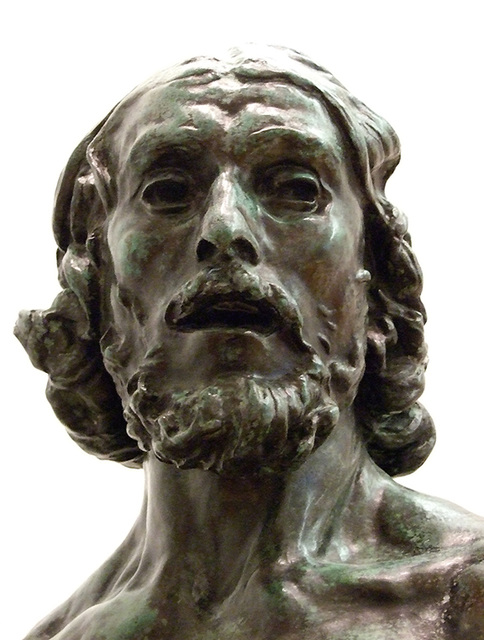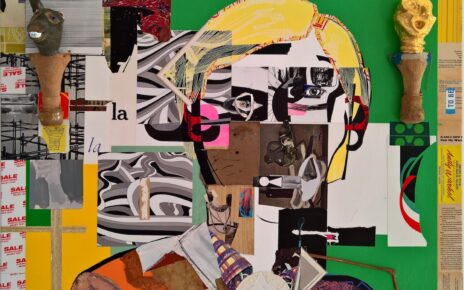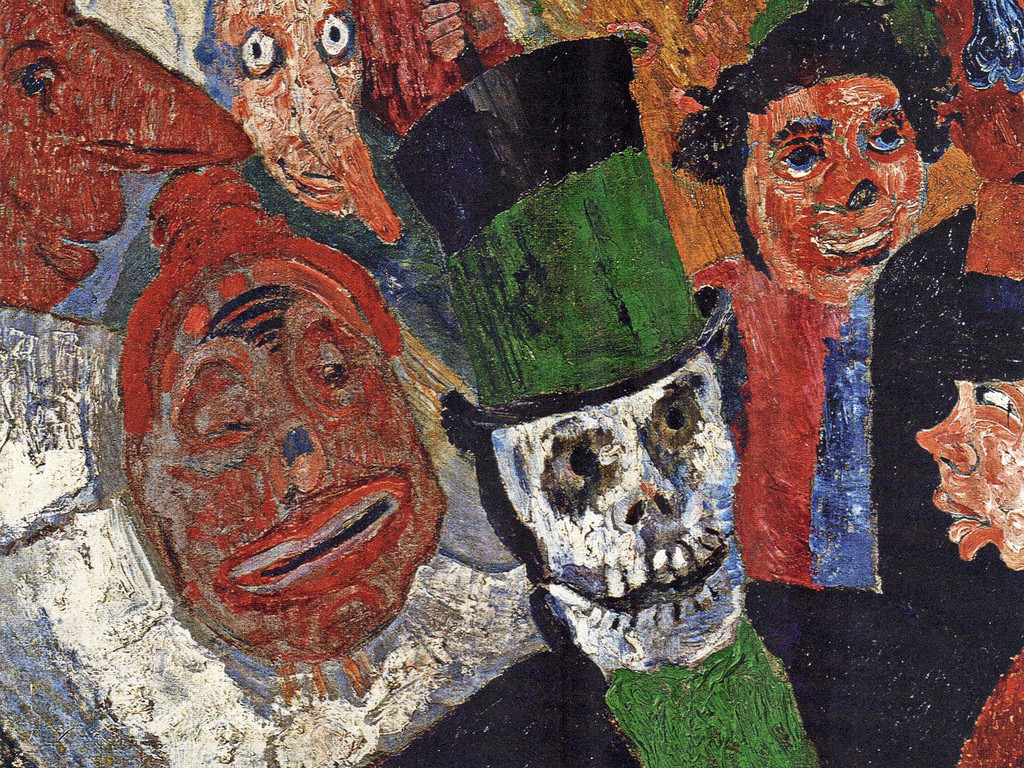The following is the second installment of a multi-part series. The first installment can be accessed here.
As Tillich argues in the second dissertation, Kant views consciousness as “nothing but the act of synthesis of the manifold” – the structured uniting of a sensory multiplicity – by means of the “forms of comprehension” he calls the understanding. 1 Subjectivity is this unity, objectivity is this manifold, and truth is their identity. There is, however, no single perfect synthesis but rather “particular acts of the synthesizing consciousness.” 2
Consciousness must synthesize because it just is the act of synthesis, but its own particularity appears among the manifold it must synthesize. Consciousness must attend to its own position in space and time and to the irreducible blindness that comes along with that positionality, and this prompts Kant to introduce the “boundary concept of the “thing in itself.” The “thing in itself” is a boundary concept because it cannot be a part of the synthesis and cannot be said to cause either the phenomena of experience or the structuring synthesis that constructs and unifies them by means of the concepts of the understanding, since causality itself is among those concepts.
Tillich asserts that the “thing in itself” appears in the first Critique as what resists the rational, as the “irrational hypostasized” and the “focal point of all the irrational moments in the development of Idealism.” 3 It is against the “thing in itself” that the traditional proofs for the existence of God collide. Although the ontological proof can lead reason to the idea of an absolute essence, being in itself, it cannot establish the existence of such an essence.
The idea of the unconditioned is presupposed by the conditioned nature of everything in experience; our acts of synthesis order the phenomena of experience in a series of dependencies, but this series collapses without an unconditioned to ground it. 4 So we search in existence for that which “in its concept contains a therefore for every wherefore.” 5 We decide to take for granted an ens realissimum, a most real being, because our synthesizing activity demands it in order to risk the act of synthesis. If we go further, however, and think we have proven the existence of such a most real being, we forget that “the unconditioned necessity of judgments is not the same as the absolute necessity of things.” 6
As Tillich puts it, “there is no way that leads from there back to existence and to the conditioned, for the via causalitatis is blocked.” 7 Ontological and cosmological starting-points are ideas, not objects of experience, not existing things. Tillich says that Kant’s distinction between the idea of essence and actual existence “is one of the most consequential for the development of philosophy.”
For Tillich, Kant’s critique of the “intelligent design” argument “occupies a peculiar position” because it anticipates the Critique of Judgment’s analysis of the experience of natural beauty, which for Kant relies on reason’s attribution of purposiveness to nature. 8 The core of that argument’s elaboration in Kant’s third critique foregrounds aesthetic judgment that “looks toward the harmony of the universal rules of the understanding and the sensuous particular and finds in this identity the principle of beauty.” 9 But this argument forgets the sublime, experienced in “the overwhelming oppressive power of the object.” 10
This experience involves a “subjection of the senses” and a corresponding “feeling of repulsion,” followed by a feeling of pleasure as theoretical (mathematical sublime) or practical (dynamic sublime) reason works to overcome this subjection. But in spite of this last move, the experience of the sublime points to “a conflict between sensibility and reason” that resists the synthesis of natural purposiveness in the experience of organic beauty as purposiveness collides with the inorganic sublime. 11
Kant’s own attempt to provide a proof for the necessity of an idea of God rests finally on practical reason. Autonomy and freedom are the two maxims of practical reason, derived solely from reason itself. Freedom is “the independence of reason from material motives that lie outside of its self-determination,” so that its only law is the law of its own being. 12 Autonomy is freedom in the negative sense (e.g., the absence of constraint), and practical reason’s intrinsic legislation (the categorical imperative) is freedom in the positive sense, though it is nothing other than the expression of reason’s autonomy. But since “in every individual it is the nature of reason to be supra-individual,” rational beings can rationally decide to substitute their own individual autonomy for the legislation that derives from reason’s general autonomy.
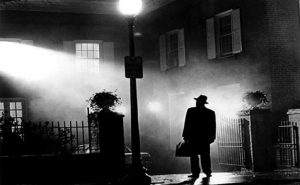 This is radical evil, the opposition of freedom to itself, and as Tillich observes, Kant insists that “all men” have made this decision against reason. 13 The “sensible, material incentives of the will,” though indifferent in themselves, become sin when they “come into contradiction with reason and dissolve its identity.” In order to rescue freedom from the fracture that is the conflict between the rational being’s highest good (happiness) and the highest good demanded by the universal self-legislating power that makes of that being a conscious experiencer and actor (a grasper and a shaper), Kant posits God as a “subjective necessity.”
This is radical evil, the opposition of freedom to itself, and as Tillich observes, Kant insists that “all men” have made this decision against reason. 13 The “sensible, material incentives of the will,” though indifferent in themselves, become sin when they “come into contradiction with reason and dissolve its identity.” In order to rescue freedom from the fracture that is the conflict between the rational being’s highest good (happiness) and the highest good demanded by the universal self-legislating power that makes of that being a conscious experiencer and actor (a grasper and a shaper), Kant posits God as a “subjective necessity.”
This necessity assures the acting subject that its obedience to reason’s categorical imperative will not have been a useless gesture even if it runs up against the causal chain of events in a way that results in the suffering and death of the happiness-seeking free being. God must be posited because God harmonizes the demands of reason with this causal chain in such a way as to lead eventually to the reconciliation of happiness and virtue. Thus, for Kant, God “remains an object in relation to the thinking subject, a thing, even though thinking and willing are ascribed to him,” and this posited God does not draw reason beyond itself so that the affirmation of this God “is without the force of truth.” 14 Autonomous reason “is certain only of itself, of its own autonomous legislation.”
What remained largely implicit in Kant was rendered explicit in Fichte, namely the unity of the free moral legislator and the transcendental unity of apperception as the conscious reason from which both freedom and nature derive. As Tillich argues, this is Schelling’s starting-point. The Kantian “’thing in itself,’ ‘radical evil,’ and ‘the inorganic’ (the sublime)” shatter the Kantian system as Schelling’s work develops. 15 These three instances of reason’s irrationality challenge the coherence of theoretical reason, practical reason, and judgment respectively, and point to a Real that resists reason, that cannot be posited by a rational free subject and cannot be escaped.
This Real, unlike the Kantian-Fichtean God, is simultaneously included in and excluded from its own ontology. Its referent is that which is known by its very contradictory appearance in the self-world structure to be other than idea, other than concept. It is the irrational in experience despite experience’s own reliance on a reasoning synthesis that pits theoretical and practical reason’s a priori assumptions against themselves and each other. Essence, known only through the traces the subject leaves in existence as it synthesizes and acts, as it grasps and shapes, cannot be found in existence and is continually disrupted by existence.
For Tillich, this disruption is as fatal to Kant’s God as it is constitutive of Schelling’s God and his own. Tillich’s “ground of being,” which is also an “unground” or abyss, is a repudiation of Kantian theology based on what it reveals about the failure to establish an identity that will successfully hold the elements of experience together in a coherent unity.
In the Systematic Theology, Tillich follows his own earlier analysis of Schelling’s work and identifies the resistance to free deciding subjectivity with the first person of the Trinity and with Schelling’s first potency. Tillich rejects the notion that God is actus purus, in Whom every potentiality is also actual. For Tillich, a God Who was pure actuality would be dead. God is living only inasmuch as God is both potentiality and actuality. Tillich cites both Bohme’s “nature in God” and Schelling’s “first potency” in defense of his notion that God is the dynamic tension between actuality and potentiality. 16
God’s dynamism is the source of divine creativity. As potentiality, it includes a “not yet” as well as an “already.” Tillich calls potentiality “the negative element in the ground of being which is overcome as negative in the process of being itself.” Thus, he says, God is no closer to consciousness than to the unconscious. God carries within Godself that in Godself which is not God. In human beings, this element is not overcome and remains “effective as a threat and a potential disruption.” 17 This element is opposed to form, again following Tillich’s own understanding of Schelling. Tillich refuses to subordinate God’s will to God’s reason.
For Tillich, this means that God’s dynamic, creative, but ultimately blind self-transcendence is not subordinated to its expression in structure, reason, and form. Tillich argues that for over a century, “a decision has been made in favor of the dynamic element.” Tillich thinks this decision agrees more with the Bible, where God’s freedom encompasses what appear as surprising and arbitrary events, than does Kant’s. This dynamic element is God’s aseity, God’s self-derivation, but self-derivation also implies unconditionedness, irresistible, resisting, up-againstness. “A conditioned God is no God.” 18 But as reflection on this concept shows, God’s freedom runs up against itself with questions like whether God could choose to be free or whether his freedom is his destiny.
Tillich’s answer seems to be “yes,” since here he shifts from an ontological to an epistemological perspective, saying that humanity’s ultimate concern does not depend on humanity or on any other finite being or concern. The term used throughout the rest of the Systematic Theology to refer to this self-transcending dynamism that resists actuality, strangely since it is associated with dynamism and potentiality rather than with act, is “power.”
As Clayton Crockett argues in his Interstices of the Sublime, 19 Tillich’s interpretation of Schelling’s Weltalter correctly reads Schelling as saying that the first potency is the creative power of God, and not simply, as Slavoj Zizek would read it, God’s self-enclosure. Self-enclosure is an entailment of self-transcendence, an entailment that correlates with the form or structure that becomes actual in self-transcendence. As creativity generates form, creativity resists final form, and this dynamism is precisely what we are up against when we are up against up-againstness.
God’s self-enclosure is an image of this secondary up-againstness of the first potency in Schelling and the First Person in Tillich. The Second Person, described as “meaning and structure,” is the eternal expression of the first. The Second Person is experienced as reality’s quasi-stability. Without it, the First Person “would be chaos, burning fire,” not creative ground. It would also be “absolute seclusion,” Luther’s “naked absolute,” and demonic. The Spirit is the force that unites ground with meaning, power with structure, the First Person with the Second.
As potentiality that is actual only in anticipation, Dreaming Innocence, like Holy Spirit, is located in the tension between dynamism and form, in potentiality emerging in one of nature’s processes and poised to act, tempted to act, but not expressing its own finite potentiality in a definite act. The state to which is points not only cannot be found in nature inasmuch as nature itself is already subject to the tragic, conflictual result of the separation of potentiality and actuality, but is finally found in a divine reality itself in eternal, almost unbearable, tension. A strange dream indeed, and an even stranger innocence.
Dreaming Innocence in Political Expectation: the Socialist Decision
This understanding of the Trinity, grounded as it is in Tillich’s close reading of German idealist philosophy, underlies Tillich’s arguments in The Socialist Decision about the myth of origin, the bourgeois principle, and the socialist principle. In the introduction to the book that was to play a momentous role in his life, the German Tillich argues that any discussion of politics must begin with humanity’s dual nature. In this book, Tillich argues that humanity is a life-process that questions itself and its environment and thus is not one with itself. Human self-consciousness makes humans “internally dualized” as nature is not.
Political theory must proceed from the conditions in which political thought is rooted, and not be derived
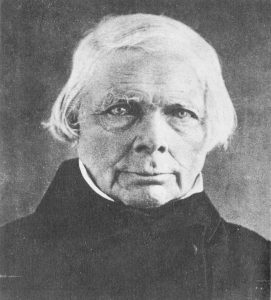
“from purely mental processes.” 20 It must take account of “drives and interests,” of “pressures and aspirations.” In this political work, Tillich is invoking what appears as the dynamic up-againstness of the Systematic Theology, and as the “first potency” in the two dissertations on Schelling. Moreover, he argues, political theory must also take account of the fact that even “the most primitive emotional drive is shaped by consciousness.” 21 Here Tillich is invoking the meaning and structure discussed in the Systematic Theology, and the “second potency” of Schelling. Humanity “arises out of being and at the same time determines it.” Human thrownness (Tillich cites Heidegger explicitly on this) implies the human question of “whence?” This question is addressed primordially in myth – the only kind of myth, since every myth is a myth of origin. 22
Human beings experience themselves as “posited” before they experience themselves as positing. The origin is creative. The myth of origin tells us how it is that reality “brings us forth as something new and singular, but it takes us, as such, back to the origin again.” The dimension of experience that corresponds to the myth of origin is for Tillich “the root of all conservative and romantic thought in politics.” But human beings also experience themselves “in existence,” which for them includes the experience of “a demand that frees them from being simply bound to what is given, and which compels them to add to the question ‘whence?’ the question ‘whither?’” 23
The demand is a demand “for something that does not yet exist but should exist.” The being who experiences the demand knows that it involves “more than a mere development of what already is” and is “directed toward what ought to be.” Therefore, “the question ‘whither’ is not contained within the limits of the question ‘whence?’ It is something unconditionally new that transcends what is new and what is old within the sphere of mere development.”
The unconditional demand “that something unconditionally new should be realized through oneself” breaks the myth of origin. This “is the root of liberal, democratic, and socialist thought in politics.” 24 If the break with the myth of origin marks the difference between conservative, romantic thought and liberal thought, the break with metaphysical harmony marks the difference between liberal bourgeois thought and the socialist principle. Liberal bourgeois thought “believes in a metaphysical harmony which is certain to prevail in the historical process,” and is confident that “nature is knowable and can be put into the service of humanity because the categories of the human mind are the elements that give nature its structure.” 25
The bourgeois revolution of 1848 “attempted to free all strata of society from the bonds of origin, both spiritually and materially, by raising the idea of progress to the status of an ontological and ethical principle.” The bourgeois principle relied on the belief in harmony and progress, so that “if the belief in harmony is shaken, the bourgeois principle is shaken.” And it has been shaken. Tillich’s earlier analysis of Kant in the second dissertation had already recounted its philosophical unraveling, and his interpretations of Fall, Creation, and Divine self-transcendence emerge from that unraveling. Here he discusses its social unraveling. Not only is it the case that “the bourgeois belief in harmony and in progress stands in total contradiction to the proletarian situation,” 26 but even the bourgeoisie and the proletariat must forge alliances with the powers of origin in order to win elections.
Moreover, socialist neglect of the powers of origin is naïve, since it must oppose the bourgeois principle but has nothing in itself from which to forge a positive vision of the future. Its demand is the demand for the new that fuels the bourgeois principle, but it lacks the latter’s belief in harmony, the belief that lends to it the conviction that its actions are in accord with nature or its God. It has an ontology of conflict and an ethics of hope, and these are in conflict. But Tillich notes that this is only apparently true, because inasmuch as socialism emerges from the historically and socially located struggle of the proletariat, it is rooted in a cultural past, in a particular myth of origin, which is the Christian myth. It is a myth of humanity breaking with the origin in response to the demand, and of reconciliation through the actualization of the demand in a way that is transparent to the power of origin – theonomous justice.
In Tillich’s retelling of the Adam myth in The Socialist Decision, Dreaming Innocence belongs to the powers of origin, to the conservative, romantic politics of National Socialism. But Tillich warns against a simple rejection of the powers of origin and the state of Dreaming Innocence, or essence.
Socialism, if it is to actualize its own vision of justice, must do so from out of the givenness of its situation and the imaginable possibilities accessible to it in that realm. It has the advantage of rejecting bourgeois harmony and recognizing the tension that characterizes existence. It must also recognize the givenness that empowers its effort to actualize the demand. In the concept of the kairos, Tillich seeks to preserve both political expectation as eternal unactualized potentiality and as expectation for specific concrete radical change in a given situation, “a definite content of expectation” emerging from and pertinent to “a particular time.” 27
In the fourth and final lecture of Tillich’s 1951 series on the political meaning of utopia, 28 delivered half a decade after his declaration that the time of kairos had passed us by, Tillich stands by his earlier assessment of the kairos concept by way of a kind of political autobiography. He begins with the return from World War I to a German homeland where a conservative Lutheran transcendental utopia was in conflict with utopian socialism, an immanental utopia. “Socialism had won the revolution because the forces of the conservatives had been disorganized or destroyed by the War.” 29 Lutheranism, the “Protestant majority,” adopted a negative stance toward any social utopia.
Tillich and other colleagues’ wartime experiences and reflections convinced them that “a utopia of simply going forward did not grasp the human situation in its finitude and estrangement” and that an exclusively transcendent utopia “cannot be an expression of the New Being.” They decided that “in the horizontal dimension something can happen, something new, something realizable here and now, under present circumstances and conditions, with the possibilities given to us” and that “we must go forward in order to see these possibilities and convert them into reality.” 30 They discerned in the actual situation “an ‘hour of fulfillment’ of possibilities which earlier could not come to fulfillment.” They opposed to this perception of an hour of fulfillment a Lutheran transcendental theology which declared this utopic action to be “a preliminary and consequently ambiguous one” that “we did not dare” affirm as absolute.
After this, says Tillich, came “terror, and fanaticism turned against itself.” This reaffirmed the sense that actualized utopia in existence “remains provisional and ambiguous.” They were told that the kairos concept would “weaken the revolutionary forces” because it could not “demand an unconditional faith.” Indeed, says Tillich, their critics had a point. Basic social insecurity increases human beings’ desire to “surrender themselves totally to a finite reality.” 31 Forces “aroused” in this way “dare not be underestimated” and “are indeed great forces,” leading to the necessity of “an unconditional commitment against them.” This unconditional commitment must be coupled, however, with the knowledge that “we are not committed to something absolute but to something provisional and ambiguous” that is subject to criticism and even to rejection, but that at the moment calls for an unambiguous “Yes.”
Without this reserve, this contracting movement of withdrawal from the actual that makes every concrete utopian struggle appear as fragmentary and anticipatory, the utopian self-transcendence that can be or is being actualized in the kairos of the current context “collides with our own finite nature and shatters.” But with it, with the acknowledgement of the fragmentary and anticipatory nature of finite utopia grounded in the potentiality that is never wholly and finally actualized, “the truth of utopia is on our side and this truth will eventually triumph.” Despite being “rebuked repeatedly” for holding on to “this principle of ultimate criticism,” Tillich ends his autobiographical sketch by declaring that “history has proved us right.”
In these lectures, Tillich makes the relationship between the Dreaming Innocence myth and the demand that breaks it and that fuels movements against authority (bourgeois revolution) and exploitation (proletarian revolution) clearer than it is in the Systematic Theology. In the first lecture, he develops his political ontology starting from “man’s essence” and “the ground of being insofar as it reveals itself to man.” 32 As in the Systematic Theology, freedom means that a human being is “able to act as a whole person, as a self in the wholeness of his being” rather than as the vehicle of conflicting drives. 33 Freedom also means “having possibilities.” This is the case because human beings are “able to transcend the given, and infinitely to transcend it.”
Of course, this is not true “in fact,” and that is “the problem of finitude.” Unfreedom is dehumanizing primarily because the loss of selfhood, the loss of the unity of the person, results. “He who no longer is able to act from centeredness, from wholeness, whence all elements of his being join in an ultimate decision, has ceased to be man in the true sense of the word.” It is the loss of centeredness and not the loss of possibility that is primary and most tragic in unfreedom. The “I” becomes an object to others and to itself, “incapable of reacting in a centered way.” 34 Moreover, possibility is temptation: power corrupts because power means “having possibility in a concrete, practical sense.” If possibility “ontologically constitutes” the structure of humanity, this becomes “concrete possibility” in an organization or group that has power – giving politics its dignity and its temptations.
Humanity’s finitude means that the actualization of its possibility always threatens it with nonbeing. This threat is not simply a matter of external threats such as violence and death, but also a matter of internal threats such as “error and guilt.” Every transcendence of the given is subject to the loss of self in error and guilt. Thus, human beings are essentially anxious and courage is the taking of that anxiety upon oneself rather than denying or overlooking it.
Since anxiety is ontological rather than simply psychological, it cannot be escaped. Under conditions of  existence, it generates a “will to security” that “seeks always to safeguard against future threats by becoming all the more attached to the past.” 35 Tillich mentions that at “this” time (1951), this was becoming true in America. Americans were “choosing (the past) rather than the present or the future” because they believed they would find in that past unthreatened security where so much has survived for so long. 36 This statement is interesting in view of the way Dreaming Innocence functions in the Systematic Theology as a kind of absolute past eternally accompanying existence.
existence, it generates a “will to security” that “seeks always to safeguard against future threats by becoming all the more attached to the past.” 35 Tillich mentions that at “this” time (1951), this was becoming true in America. Americans were “choosing (the past) rather than the present or the future” because they believed they would find in that past unthreatened security where so much has survived for so long. 36 This statement is interesting in view of the way Dreaming Innocence functions in the Systematic Theology as a kind of absolute past eternally accompanying existence.
Tillich is here accusing Americans of seeking a return to Dreaming Innocence that, while manifesting the form of courage that self-protection is, loses “the dimension of the future.” Another side of anxiety attaches itself to expectation. Unlike security, expectation “looks to the fulfillment in the future of those possibilities which indeed constitute the essence” of humanity. Expectation, like security, looks to an absolute past of pure potentiality, but recomposes the elements of this past as partial and anticipatory fulfillment of that very non-actualized past. It “goes forward beyond the given, toward the future.” It has a double anxiety: anxiety about giving up security and anxiety about giving up the unrealized possibilities that this security stifles.
It is at this point in the lecture that Tillich explicitly introduces what he calls “the psychology of innocence.” Innocence, he says, is this expectation. It is anxious about losing possibilities and about and anxious about losing security. Innocence “stands between these two anxieties and in this situation of anxiety, it has to make a decision.” But when it does so, it can’t win for losing, and what it loses is precisely innocence, “even if it decides for non-actualization.” If Adam had decided to leave that fruit alone, he would still have fallen because “immediacy is in any case lost as the result of conscious decision.” This anxiety of expectation is what dreaming innocence looks like close-up in actual experience.
This is why every futurally oriented utopian project, according to Tillich, looks to a prelapsarian past as fuel for a utopia that is nevertheless imagined as other than that past, as its fulfillment. 37 Utopia is not just in the future but first of all “once upon a time.” The “will to security” seeks “that which points to the future” among what is given as “having already been present in the past” and is thus accessible now as “essence.” Here, Tillich cites fellow Schellingian socialist Ernst Bloch, whose writing on hope influenced liberation theologian Gustavo Guttierez, in support of his claim that “dreams of a better life – are primarily dreams that look in the first instance to the past but then also to the future.” By looking to the past, warrant for the dreaming is “derived from the fact that the content of these dreams was once reality.”
Tillich draws several examples from mythology and politics in which a time of origin renders plausible a better life in the future. In each of them, a primordial essence before the origin is lost and we now live in contradiction to it, but it can be restored. “The ontological distinction between essence and existence, essence and actuality, is here projected into the dimension of time.” 38 In myths of origin and expectation, we always live in the worst of times. “It is always the last period that gives birth to utopia.” This is what makes the moment of reversal immanent. 39
Tillich castigates both existentialism and Karl Barth for abandoning the structure of expectation and the anxiety of Dreaming Innocence, the former by denying that humanity has an essence and the latter by declaring humanity to be too utterly estranged to participate in it. Barth, like Augustine, abandons expectation to the resignation that “the last age no longer lies before us” but against them Tillich poses “an unbroken movement of groups that believe there is a dialectic that makes the great reversal inevitable once the deepest No has been reached.” 40
In the third lecture, Tillich declares that utopia etymologically suggests “that for which there is not yet or is no longer a place in reality, which can nowhere be found even if one goes to the remotest islands.” 41 It is “that which comes out of the past as recollection and is an anticipation of what may come in the future.” 42 Its principle is “the negation of the negative,” of finitude and estrangement. Finitude and estrangement, however, are ubiquitous. This is why an imagined social utopia that isolates social utopia from nature and then expects “something within the human sphere that can be meaningful only if it is expected in unity with a universal healing” is the most unrealistic of all utopias, far more unrealistic than the frankly unrealistic Biblical vision of the lion lying down with the lamb. Since humanity is within nature, conflict in humanity is not ended as long as conflict in nature remains; conflict is natural as well as social and cannot be realistically transcended except in anticipatory and partial actualizations. 43
Power dynamics, likewise, cannot be escaped and “cannot be bad.” Utopia does not oppose these but rather opposes “the ruling structure” that is “actual as an estranged ruling structure” now in our present circumstances. This structure “has two sides,” authority and exploitation. Opposition to these occurs “through the whole of history” but culminates in the post-Enlightenment bourgeois revolutions founded on the immediate participation of rational beings in Reason. Tillich then repeats his criticism of the bourgeois assumption of harmony, though more gently than in The Socialist Decision. The fourth lecture discusses the positive meaning of utopia (truth, fruitfulness, and power) and its negative meaning (untruth, unfruitfulness, and impotence), and suggests the kairos as a concept that is grounded in self-transcendence: “only where life risks itself, stakes itself, and imperils itself in going as far as possible beyond itself” can life be found. What is not yet “lies still beyond the decision of whether it is possible or impossible” and because of this, Tillich suggests, an absolute unrealizable utopia – a potentiality that is in principle never realized, a messianic age that never comes – and a relative, immanent, and realizable partial and fragmentary actualization of it are necessary.
Dreaming Innocence here returns as what always accompanies and serves as a critical negation of every actual utopian project. Dreaming Innocence – potentiality that is never actualized, the absolute past – is both that from which we are separated by the decision to actualize the demand for self-transcendence, and that from which, from within existence, the demand itself comes to us. “Humanity before the Fall,” a repetition of the First Person of the Trinity, the state of ontological (as opposed to psychological or existential, e.g., estranged) anxiety, is repeated in the kairotic risk that, partially and fragmentarily, actualizes the New Being in social movements here and now and that provides the material for critical evaluation and transcendence of those movements.
The desire to return to Dreaming Innocence by preserving the given as a means of obtaining security fuels romantic reactionary politics, while the critical “use” of Dreaming Innocence, which couples it with rejection of the given, a decision to risk something new, fuels a revolutionary “utopian” politics that is perpetual, taking as it does its Dreaming Innocence with it even as it rejects the given. Revolutionary politics, the overthrowing of estranged authority and exploitation, looks back toward Dreaming Innocence but leans into the demand that promises an actual future beyond authority and exploitation, but also beyond innocence and beyond dreaming.
Alan Jay Richard, Ph.D., is an independent scholar and activist currently affiliated with Realistic Living, a nonprofit community in rural north Texas that experiments with new forms of collective Christian practice. He has been involved in activism since his work with the AIDS group ACT-UP in Syracuse during the late 1980s, leading to a 20-year career in public health epidemiology and research. Since leaving that career to work in the religion field, he has also been involved in environmental and anti-poverty activism. Along with his Realistic Living work, he serves as president of Citizens Organizing for Resources and Environment, and facilitator for the Fannin County Good Food Project, an effort to address rural food insecurity. He is currently interested in developing educational and spiritual formation paths for unconventional and subversive ministries.
- Paul Tillich, Mysticism and Guilt Consciousness in Schelling’s Philosophical Development (Lewisburg, PA: Bucknell University Press, 1974), 34.
- Ibid.
- Ibid., 35.
- Tillich, The Construction of the History of Religion in Schelling’s Positive Philosophy (Lewisburg, PA: Bucknell University Press, 1974), A585.
- Ibid., A586.
- Ibid., A594.
- Tillich, Mysticism, 34.
- Ibid., 37.
- Ibid., 43.
- Ibid.
- Ibid., 44.
- Ibid., 38.
- Ibid., 39.
- Ibid., 40.
- Ibid., 44.
- Paul Tillich, Systematic Theology, vol. I (Chicago: University of Chicago Press, 1951), 246.
- Ibid., 247.
- Ibid., 248.
- Clayton Crockett, Interstices of the Sublime: Theology and Psychoanalytic Theory (New York: Fordham University Press, 2007), 97-116.
- Ibid., 2.
- Ibid., 3.
- Ibid., 4.
- Ibid., 5.
- Ibid., 5.
- Ibid., 51.
- Ibid., 58.
- Ibid., 132.
- Tillich, Political Expectation (New York, NY: Harper & Row, 1971), 125-180.
- Ibid., 176.
- Ibid., 177.
- Ibid., 178.
- Ibid., 126.
- Ibid., 127.
- Ibid., 128.
- Ibid., 130.
- Ibid., 131.
- Ibid., 133.
- Ibid., 134.
- Ibid., 135.
- Ibid., 138.
- Ibid., 154.
- Ibid., 155.
- Ibid., 163.


